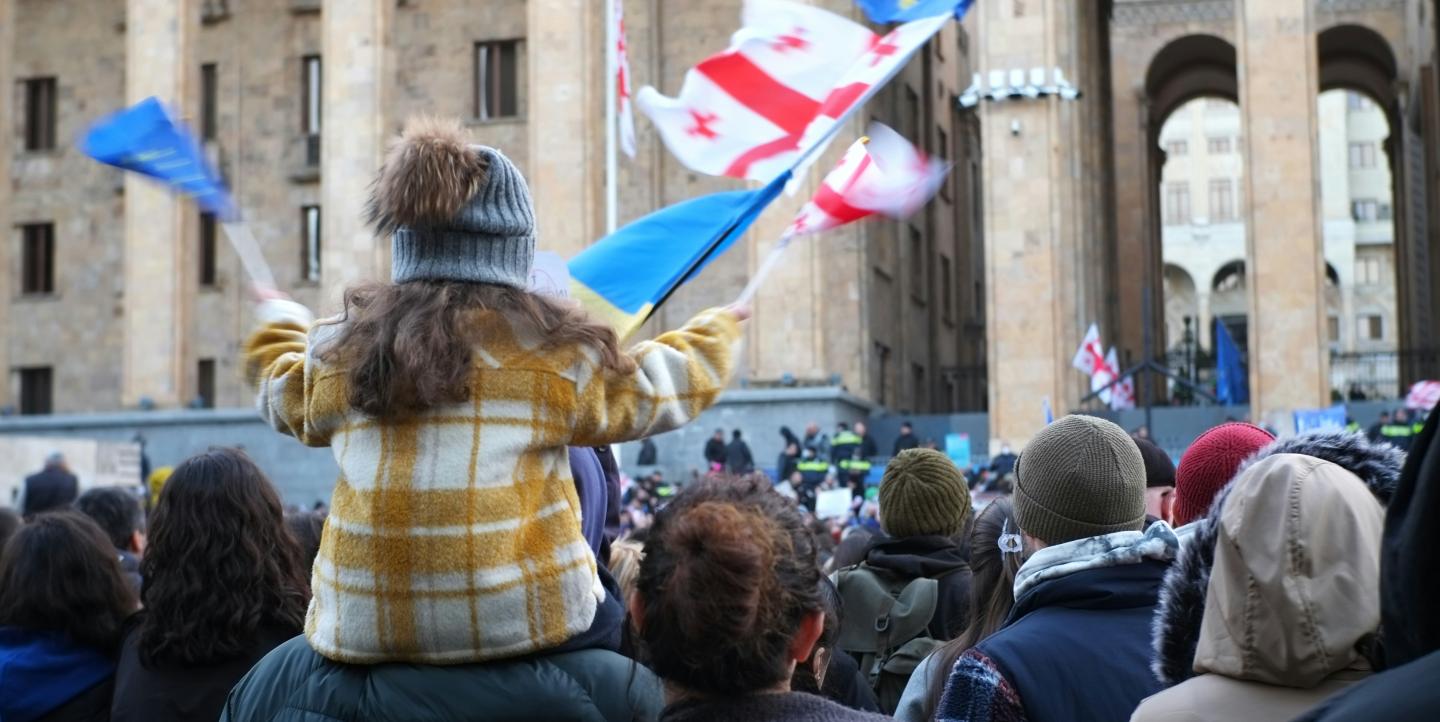In late May, protests broke out in Georgia after the country’s parliament overrode a presidential veto to enact its new Law on Transparency of Foreign Influence.
The legislation is commonly referred to as the “Russian Law” due to the inspiration it drew from Russia’s 2012 “foreign agent law” which required organizations involved in "political activities" receiving funds from abroad to register as "foreign agents."
The law effectively stifled critical thought, independent media, and the civil sector in Russia.
Georgia’s new legislation, set to go into effect on August 3, threatens to expose independent media and civil society in the country to new risks.
What’s in Georgia’s “Russian Law”
Once Georgia’s “Russian Law” goes into effect, all organizations in the country that receive more than 20% of their annual income from abroad will have one month to register in a specially created Public Registry. This database will identify these organizations as "spreaders of foreign influence," which the Georgian government refers to as “agents.”
The legislation allows government officials to inspect these organizations’ finances, files and more, based on anonymous tips, or orders from authorized officials within the Ministry of Justice. During the inspections, authorities are permitted to confiscate any information or materials from the organization, including documents containing employees’ personal data.
Inspections of an organization are permitted once every six months; if it is revealed that an entity did not register as a foreign agent when it should have, the Agency of Public Registry will do so for the organization upon the Ministry's request. The organization in question will also be subject to a fine of 25,000 Georgian Lari (GEL), about US$9,000.
Failure or refusal to submit a registration application to the Agency, or missing the deadline for correcting application issues, will result in a fine of 10,000 GEL, or about US$3,600. Repeating any violations will lead to fines of 20,000 GEL, or about US$7,000.
Background of the Law
Georgia’s ruling party, Georgian Dream, first discussed its Russian Law in February 2023. It backed off at the time, however, due to mass citizen protests that broke out after its first reading in Parliament.
The law’s introduction at the time was met with strong disapproval from Georgia's Western partners, as well. The governments of the EU and the U.S. condemned the legislation, declaring it an obstacle to Georgia's Western aspirations.
In March 2023, Georgia’s government assured the population that it would not reintroduce the bill – a promise it did not uphold. Just over a year later, in April 2024, Georgian Dream began working on a revised version of the law.
Citizens took to the streets once again, in large-scale demonstrations filling Tbilisi with protesters demanding that Parliament withdraw the law. This time, however, Georgian Dream political leaders did not relent. Neither the personal sanctions promised by the U.S. government nor the appeals and visits from EU officials could deter them.
The Venice Commission, which as the Council of Europe’s advisory body provides legal advice to EU member states, advised the Georgian government to repeal the law. Its report stated that the legislation’s “fundamental flaws will involve significant negative consequences for the freedoms of association and expression, the right to privacy, the right to participate in public affairs as well as the prohibition of discrimination.” The law, it continued, “will affect open, informed public debate, pluralism and democracy.”
In response, Georgian Prime Minister Irakli Kobakhidze called the Venice Commission "faltering," and accused it of abandoning its “professional dignity."
Police, meanwhile, have beaten and harassed journalists covering the unrest, and unidentified “masked units” have joined efforts to silence critics of the law, too. Journalists have been subjected to vandalism, smear campaigns, threatening phone calls, and more. Posters labeling opposition as "enemies of the nation" among other accusations have been found at their homes.
Amid the unrest, the Russian government has expressed its support of the Georgian Dream legislation, likely recognizing the threat it poses to Georgian democracy.
Media targets
Georgian journalists are acutely aware of the danger the newly enacted law poses to them and their work.
Nino Zuriashvili, an investigative journalist and founder of Studio Monitor, was among the first to be targeted. Vandals wrote "agent" in red paint on her car, and posters labeling her as an agent were put up near her home and office.
Zuriashvili is familiar with such crackdowns on the press, having begun her career in 1999, when Georgia was ruled by an undemocratic clan regime and remained under Russia's influence. After the promise heralded by the 2003 Rose Revolution which initiated the passage of institution-strengthening reforms in Georgia, the country experienced democratic backsliding. In 2012, Studio Monitor was attacked; equipment was stolen and damaged. The crime remains uninvestigated to this day.
With the adoption of the "Russian Law," Zuriashvili has once again become a government target. She expressed significant distress at being among the first attacked: "Their goal was to increase the pressure on us.”
Georgian media cannot afford to succumb to fear or surrender, given the critical values at stake, she urged. Her organization, she added, is committed to continuing its work at any cost, with full support from all its employees.
"We face a challenging summer ahead. It's difficult to even imagine what the authors of this law have planned for us. However, we place our hope in the people fighting for a European Georgia, and in international organizations, Western partners, and donors who support our security and assist us in this process,” said Zuriashvili. “We will see how we fare.”
Publika is expected to be another target of the "Russian Law." The media outlet, which reports on politics, social issues, and more, receives most of its funding from European governments and organizations in the West.
Lika Zakashvili, who founded Publika with her colleagues in 2019, condemned the newly adopted law as undemocratic. She does not intend to comply with it. "The State now has repressive tools at its disposal, which includes not only the use of hate speech against us on social networks but also issues of physical and psychological safety,” she said. “We will endure, stand firm, refuse to comply with this law, and do everything to prevent its enforcement in this country.”
The Publika team is bracing for difficult months ahead, anticipating that the government will require them to register in August, and fine them if they refuse. "We are ready for this. We will continue to work until the [October] elections and will do our best to provide information to the public," said Zakashvili.
Constitutionality of the Law
The Law on Transparency of Foreign Influence contradicts Article 78 of Georgia’s Constitution, which mandates that the government do everything possible to facilitate the country’s integration into the EU and NATO.
Mamuka Andguladze, a media researcher with the Media Advocacy Coalition, argued that compliance with the law is not possible because it is unconstitutional and threatens Georgia's European integration.
"Media organizations and civil society groups have openly stated that they will not register. We plan to use legal mechanisms, such as challenging the law in the Constitutional Court and filing a lawsuit with the European Court of Human Rights,” explained Andguladze. “The civil sector and media organizations will continue their activities. We are currently studying, researching and seeking the necessary resources for future actions.”
The Media Advocacy Coalition has pledged legal assistance and support to media organizations impacted by the law.
With organizations required to register beginning in August, hundreds of representatives from the civil and media sectors have publicly declared their refusal to comply. The government will face the challenge of levying fines on independent media, likely creating significant political tension leading up to the country’s parliamentary elections in October.
Photo by Sheldon Kennedy on Unsplash.


